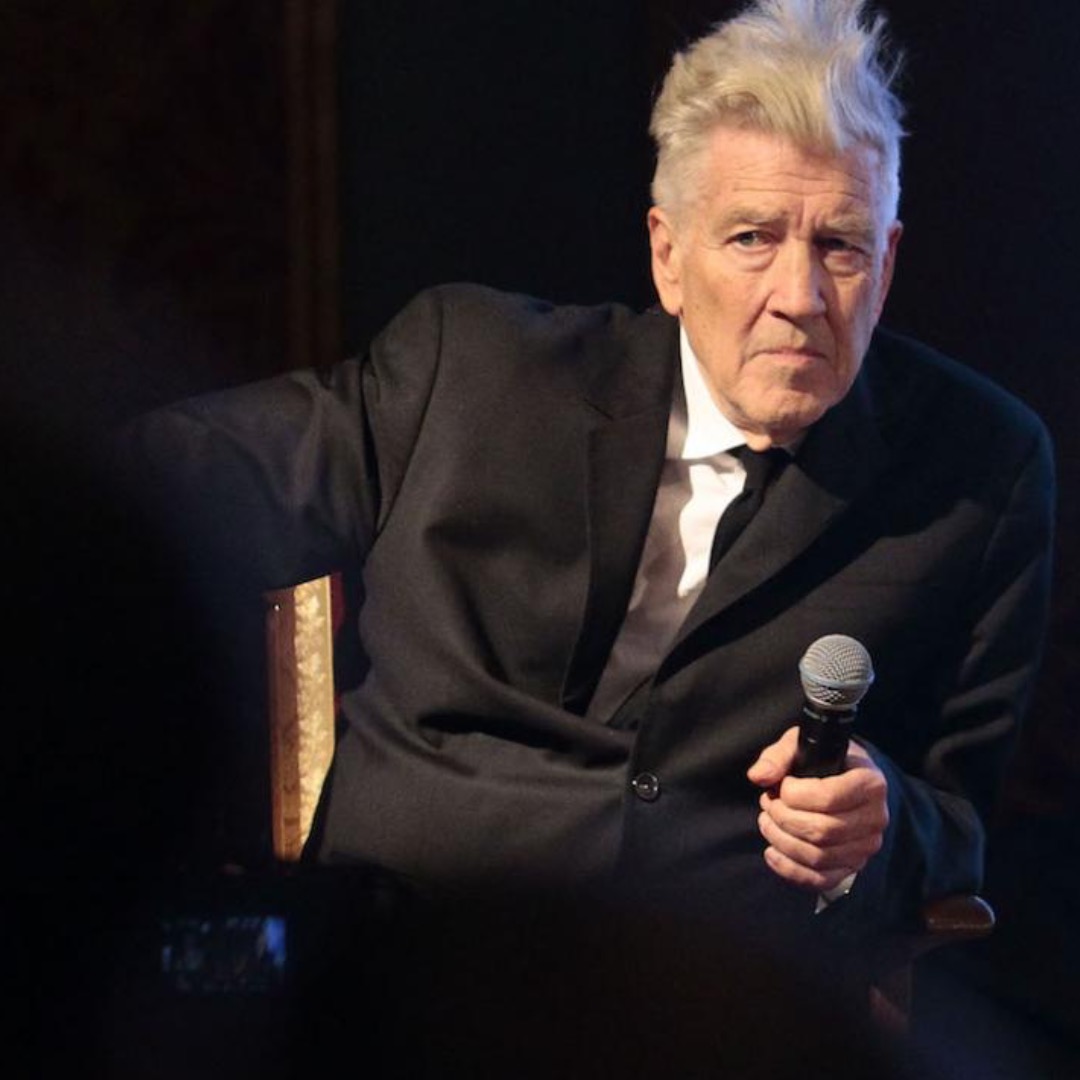One of Hollywood’s worst weeks in years just got worse. David Lynch, the four-time Oscar-nominated filmmaker behind Blue Velvet, Mulholland Drive, Eraserhead, Wild at Heart, The Elephant Man and others who also created the Showtime drama Twin Peaks, has died. He was 78.
His family posted the news on social media.
Lynch had been diagnosed with emphysema. Sources told Deadline that he was forced to relocate from his house due to the Sunset Fire and then took a turn for the worse. In an interview with Sight & Sound magazine last year, Lynch revealed that due to Covid fears and his emphysema diagnosis, he could no longer could leave the house, which meant if he directed again, it would be remote. He then followed up the interview with a post on social that he “will never retire” despite his physical challenges.
“It is with deep regret that we, his family, announce the passing of the man and the artist, David Lynch,” the family’s post reads. “We would appreciate some privacy at this time. There’s a big hole in the world now that he’s no longer with us. But, as he would say, ‘Keep your eye on the donut and not on the hole.’ It’s a beautiful day with golden sunshine and blue skies all the way.”
An eccentric, visionary outsider, he earned Oscar noms for writing and directing 1980’s The Elephant Man — which earned a Best Picture nom — and for directing Mulholland Drive and Blue Velvet. In 2000, he received an Honorary Oscar for lifetime achievement at the Governors Awards. He also took the Palme d’Or at Cannes for Wild at Heart in 1990 and was nominated for the prize three other times. He won Best Director at the fest for Mulholland Drive in 2001.
While he broke stylistic barriers onscreen, behind the scenes, Lynch very much was an iconoclast, and handled affairs his way.
Mulholland Drive originated as a pilot he shot for ABC and Touchstone Television. Upon seeing the pilot, network execs killed it. That didn’t stop Lynch: He released the noir as a feature film, launching Naomi Watts as a global leading actress.
Born on January 20, 1946, in Missoula, Montana, Lynch began his career making short films in the late 1960s and was part of the American Film Institute’s Class of 1970. His first feature film — which he developed during his AFI days — was the influential and ever-quirky Eraserhead (1977), which he wrote and directed and went on to be a midnight-movie cult classic. That led to his breakout success with The Elephant Man, starring John Hurt as the friendly and smart but disfigured title character in Victorian England and Anthony Hopkins as the doctor who tries to treat him. When chased down by a gang of street toughs, Hurt’s John Merrick memorably cries: “I’m not an animal! I’m a human being — a man!”
Lynch’s career took off during the 1980s. He followed up the success of Elephant Man with Dune, the 1984 take of Frank Herbert’s classic sci-fi novel that failed to light up the box office, and the 1986 noir psychological thriller Blue Velvet, starring Kyle MacLachlan, Isabella Rossellini, Dennis Hopper, and Laura Dern.
While Dune was noted for being a financial bomb at the time, it wound up being the highest grossing film on the auteur’s résumé with $31.5M worldwide.
Blue Velvet managed to combine his earlier experiments with a more mainstream structure and recognizably human characters. Lynchian stand-in MacLachlan played Jeffrey, a naive young man who gets entangled in a Hitchcock-like nightmarish series of scenarios after stumbling upon a severed human ear on an otherwise pristine lawn. Once down the metaphoric rabbit hole, Jeffrey encounters any number of spooky miscreants, including Rossellini’s troubled, forever endangered lounge singer; Hopper’s violent, drug-huffing gangster Frank Booth; and Frank’s associate Ben (Dean Stockwell), a ghoulish, sexually ambiguous creep who lip-syncs to Roy Orbison’s “In Dreams” in one of the film’s most famous and unnerving moments.
Perhaps Lynch’s masterstroke arrived in 1989.
He created, directed co-wrote Twin Peaks, a bizarre sort of detective series/soap opera/sci-fi mystery-adventure and occasional outright Twilight Zone-like horror. Set in the fiction Pacific Northwest town that gives the series its title, Twin Peaks began with one of the most disturbing and oddly mesmerizing opening scenes in TV history: the beachside discovery of the plastic-wrapped corpse. The town’s popular young high schooler Laura Palmer (Sheryl Lee) had been murdered, her bluish corpse still oddly beautiful.
The discovery would bring the quirky FBI Special Agent Dale Cooper (Kyle MacLachlan), a brilliant oddball sleuth given to praising coffee, pie and, eventually, the off-putting town he adopted as his own. Along the way, Cooper uncovered many mysteries in Twin Peaks, a good number of them involving the supernatural. Along the way, “Who killed Laura Palmer?” became a national obsession.
The series lasted for two seasons and ended when Cooper finally discovered Laura’s otherworldly killer. A 2017 revival series called Twin Peaks: The Return reunited many of the original cast and characters, and under Lynch’s care became even more bizarre than the original series: The Return‘s final scene remains a standout among TV’s all-time most chilling moments. The so-called third season received widespread critical acclaim.
Lynch always was the master absurdist, both in the director’s chair and in interviews. During filming on Twin Peaks, he once directed MacLachlan, “I need some Elvis, and a little wind.”
Appearing at TCA in 2017 to promote Showtime’s follow-up Twin Peaks series, Lynch told the press that the first go-round of the series on ABC deflated after the Laura Palmer mystery wrapped. “Who killed Laura Palmer was a question we really never wanted to answer,” he said. “That Laura Palmer mystery was the goose that laid the golden eggs. We were told to wrap that up, and it didn’t get going on again after that.” In regards to the prequel feature film he made, Twin Peaks: Fire Walk With Me, and how it relates to the new series, Lynch commented, “It’s very important.”
In revisiting Twin Peaks, Lynch told Deadline, “Right now, cable television is the new arthouse.” That was rather prescient in pre-Covid 2017, as Lynch added, “Arthouses are gone, so hopefully a new wave will come, and they’ll be back at the arthouse.”
He also made a surprise video appearance at Comic-Con that year. The typically bizarre clip featured Lynch addressing the Hall H crowd with O.J. Simpson jokes and constant interruptions from an unseen intruder off-camera. It was introduced by panel moderator Damon Lindelof, who said, “Without Twin Peaks, there would be no Sopranos, no X-Files, no True Detective, no Fargo, no Lost.” The Lost and future Watchmen creator added, “I owe my entire career to this show, and I can’t think of a better place to say that in Hall H at Comic-Con before a roomful of weirdos.”
Next for Lynch after the first Twin Peaks was writing and directing the 1990 thriller Wild at Heart. Starring Nicolas Cage and Laura Dern, Willem Dafoe, Crispin Glover, Diane Ladd, Rossellini and Harry Dean Stanton, it took the Cannes Film Festival by storm, winning the Palme d’Or over films by the likes of Jean-Luc Godard, Clint Eastwood, Ken Loach and Zhang Yimou.
Lynch also often served as sound designer and wrote music for his films. His feature writing and/or directing credits also include Lost Highway (1997), The Straight Story (1999) and his last film as director Inland Empire (2006). He self-financed and self-distributed that movie stateside when no one would buy it — at the time a novel move for an auteur director such as himself. Inland Empire was his longest-running pic at 3 hours and grossed only $4M-plus worldwide.
On the response to Inland Empire, Lynch told Deadline’s Damon Wise in 2017: “No one understood it, so it didn’t do real well. And anything that’s not summer blockbuster fare doesn’t do well these days in the theater.”
In that same sit-down, Lynch said: “You know, in the old days, people came out here to California, and they just made films and had fun doing it. Then they’d go to a great dinner afterwards, when the sun went down, because they were using just sunlight — the light is so beautiful. They’re making it up, they’re getting ideas and they’re working away. There’s no rules, there’s no bulls—t, and they just make the films. Then they got rules, more rules, and more rules, and a certain way of going, where directors aren’t given final cut a lot of times, and it’s just ass-backwards. Of course you want to be involved with everything. It’s making a film.”
The always-quirky Lynch also told Wise: “I have a sewing machine, an industrial sewing machine, but I don’t know how to use it, and I would like to learn how to sew.”
His memoir, Room to Dream, co-written with Kristine McKenna, was published in 2018.
In recent years, Lynch found popularity with a younger generation of cinephiles, largely thanks to videos he began posting on YouTube and other social media sites. The videos were styled as “weather reports,” and Lynch would share the date and current temperature in his quiet California enclave. The series began during the Covid pandemic, and Lynch sometimes also would share updates on his projects and tease that new work was forthcoming.
In a rare trade interview, Lynch told us last year that he was still hoping to find backers for his under-the-radar animated project Snootworld, even if Netflix had recently “rejected” his “fairytale” pitch. We know that he was working on projects last year and that there was interest from industry partners in potentially joining Snootworld following our article.
He worked on a new project last year — a reteam with his longtime collaborator Chrystabell for an album titled Cellophane Memories. He had teased the record the record days earlier.
Lynch played John Ford in Steven Spielberg’s semiautobiographical 2023 film The Fabelmans. What sealed the deal for his appearing in the eventual Best Picture Oscar nominee? A bag of Cheetos.
Lynch, who was married four times, is survived by four children.
MORE TO COME…
Greg Evans, Andreas Wiseman and Zac Ntim contributed to this report.
From Deadline.com

